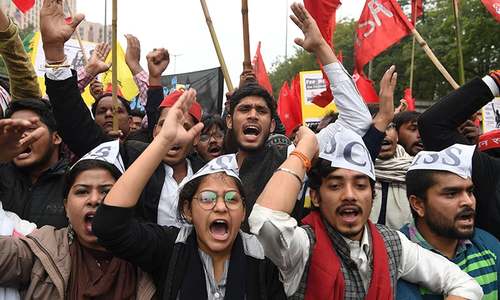5 million Indian men lost their jobs from 2016-18: report

Around 5 million men in India lost their jobs over the last two years according to a research report, a development which is at odds with Indian Prime Minister Narendra Modi's 2014 election promise of creating 10m jobs a year. Women were excluded from job loss estimates.
The research report, issued by the Centre for Sustainable Employment of Bengaluru's Azim Premji University, comes as India gears up for the second phase of its six-week-long General Election tomorrow.
The vice chairman of the National Institution for Transforming India Aayog (an Indian government policy think tank), Rajiv Kumar, said the report was "not verified" and the "veracity of the data is not known, NDTV reported.
The CSE 'State of Working India 2019' report revealed that unemployment in India had risen significantly after 2011. The report explained that the figures demonstrate why unemployment has emerged as a major election issue in India this year, according to NDTV.
The report noted that although the beginning of the decline in employment coincided with Modi's 2016 demonetisation policy, no "causal link" can be established between the two separate events.
Demonetisation of 500 and 1,000 rupee notes was part of a crackdown on corruption, people with unaccounted-for wealth, and counterfeit notes. As over 90pc of consumer purchases in India are transacted in cash, the move sparked chaos among the masses. It also failed to achieve its aims as over 99pc of the currency that India declared void in its surprise announcement was returned to the country's banks over subsequent weeks, according to a Reserve Bank of India (RBI) report.
Take a look: Jobless millions to haunt India election
According to the CSE report, the unemployed are greater levels of the youth and those who have received higher education. Those who are less-educated saw job losses and reduced work opportunities over the time period under review, NDTV reported.
The decline in the labour force participation rate (LFPR) and workforce participation rate (WPR) was largely driven by less-educated men in both urban and rural areas, the report said.
The report made it clear that joblessness was not a problem limited to the educated sections of the labour force. "While open unemployment may still be low among the less educated, there has been a marked tendency to drop out of the labour force for this section, presumably due to loss of work opportunities," the NDTV report said.
Earlier this year, a leaked report had said the country's unemployment rate rose to a 45-year high in 2017-18. A Period Labour Force Survey conducted between July 2017-June 2018 stated that the unemployment rate was at 6.1 per cent, the highest since 1972-73.











































